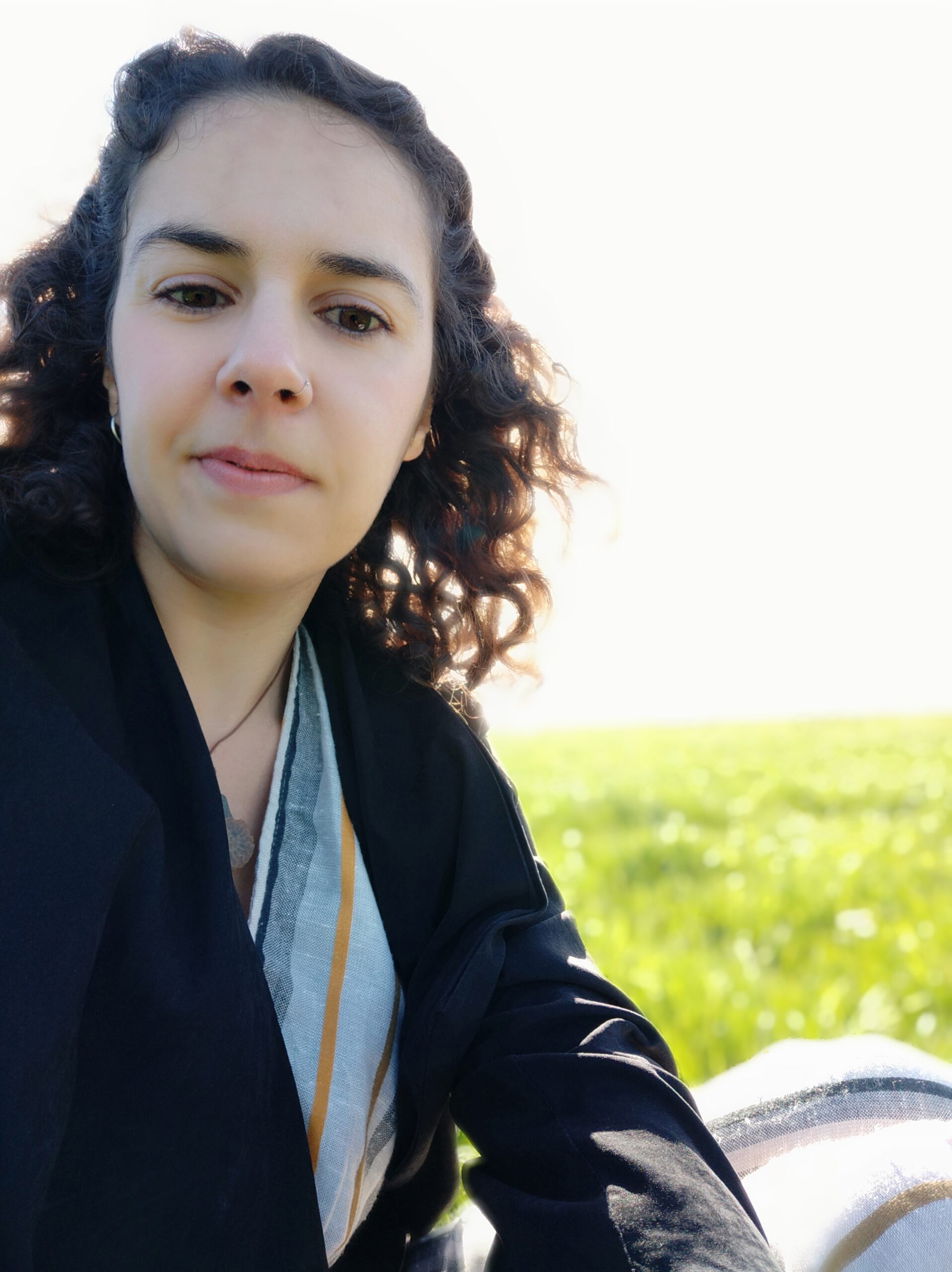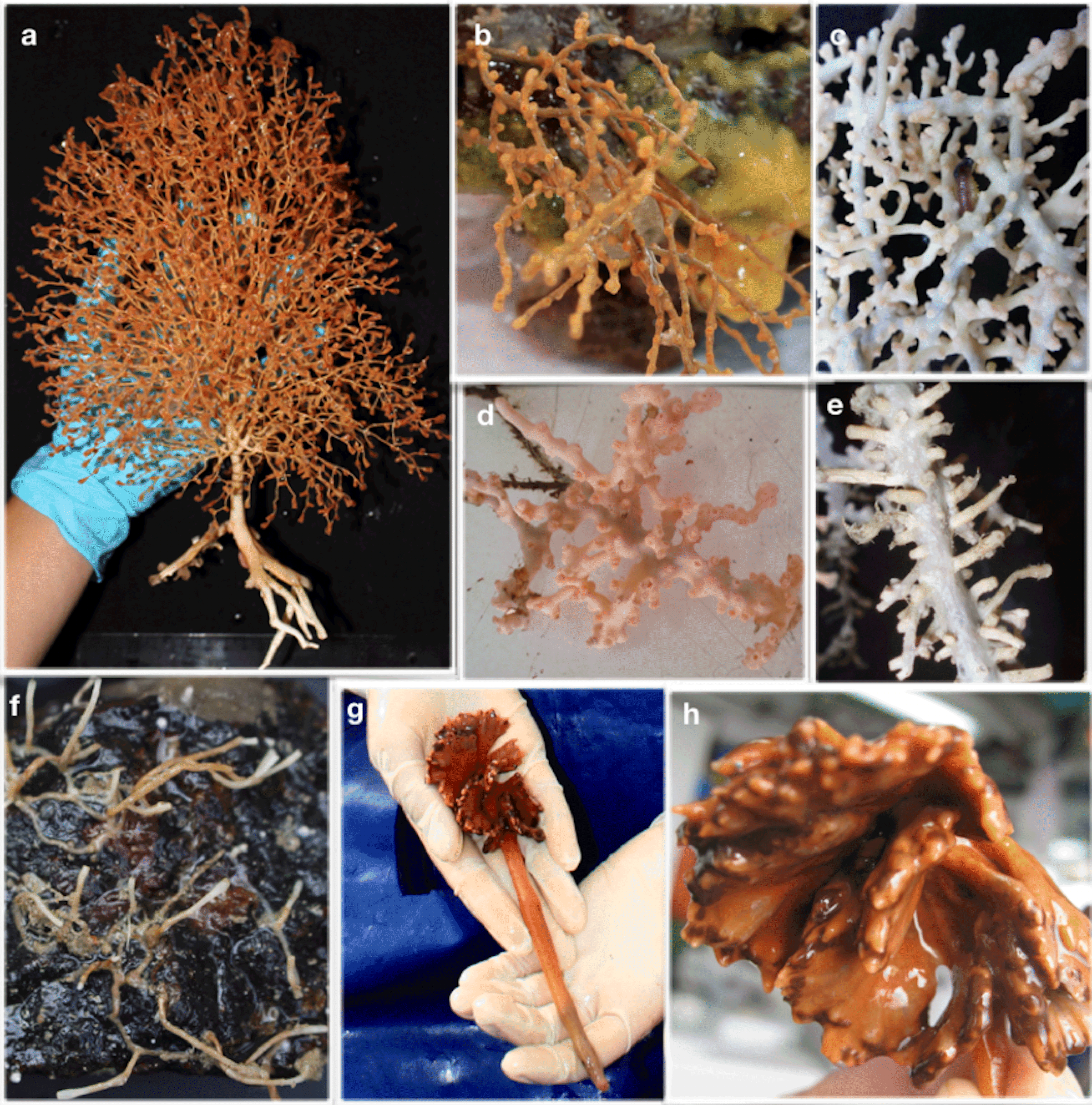Iris Sampaio
IMAR, Azores
Twitter; Linkedin; ResearchGate; Orcid; Binomia
 What has been your personal journey into the deep-sea? (Did you always know this is what you wanted to do, or start out on a completely different path?) In other words, what unique journey led you to where you are now?
What has been your personal journey into the deep-sea? (Did you always know this is what you wanted to do, or start out on a completely different path?) In other words, what unique journey led you to where you are now?
From a young age, I loved exploring animals and natural settings. Back then, I thought the only option was to be a veterinary until I discovered a degree of Marine Biology at the University of the Azores. A degree to study marine animals in paradise? Let’s go! The last year of my degree was at Faial island, where the deep sea was my favorite topic. Therefore, I asked the researchers who taught the best deep-sea classes about pursuing potential thesis and supervision opportunities. I ended up studying the impact of longline fishing on the corals of the Azores.
What is your current research question and why are you interested in this topic?
‘What is it?’ This is my main basic but fundamental research question when looking at octocorals, one of the most fascinating sub-classes of animals that inhabit the deep sea. My interest in Octocorallia identification and taxonomy emerged during my Bachelor thesis on the impact of fishing on corals. For every biological study we need to know what is our study organism. So, when I tried to identify the octocorals, to understand their diversity and complexity, to discover the puzzle of zoological nomenclature, and the organization needed while collecting deep-sea samples, I knew that was what I wanted to do.

What have been some challenges in your work or in studying the deep sea in general? Has your research turned out how you expected?
Several challenges are associated with research on taxonomy, octocorals and the deep sea. I think the main challenge has been to follow a direction on my topic of research after making a decision at such a young stage and without proper financial stability, support and independence. For that, I had to make hard choices between personal and professional goals.
Also, despite the topic of taxonomy being crucial to uncover the diversity of the vastest area of the planet, there is no curator in European museums working with Octocorallia. Moreover, deep-sea groups working with taxonomy are rare and deep-sea research is often focused on ecology and molecular sciences, which are ironically grounded in taxonomy.
Why is this work important to you and society as a whole?
For me, my work fulfills my own curiosity, uncovers the beauty of nature at several scales and makes a point of being an explorer and field scientist in a current technological driven world. For society, my work unravels the variety of species and ecosystems which are there but hidden from sight. These species and ecosystems are beautiful, support high diversity of other taxa, and are the source of food, tourism, cosmetics, health keeping the ecological balance of the planet.
Because we are such an international organization, can you describe what the deep-sea science community is like in your region?
I guess I live on the island with more deep-sea scientists per capita. Faial is a tiny rock in the middle of the Atlantic Ocean, part of the portuguese Azorean archipelago. Here the competition is fierce but the diversity of topics of study is high. From people working with taxonomy, ecology, biotechnology and habitat mapping, scientists in Faial work at local and global scales discovering seamounts, hydrothermal vents or studying several taxa as bacteria, sponges, mussels, fish, scleractinian corals and octocorals in distinct ways.
What is your current position (student, researcher, government, non-profit etc) and what do you like about your current role in deep-sea science?
Currently I am unemployed, in the limbo between presenting my PhD thesis and being a postdoc. I have delivered my PhD thesis at the end of 2019 and, while waiting for a date to defend it, I am about to start a work as octocoral taxonomist on the identification and clarification of preliminary identifications of octocorals stored on a deep-sea biological collection of DOP, University of the Azores, COLETA. This work is fundamental for the description of vulnerable marine ecosystems (VMEs) of the Azores on the framework of the EU2020 project iAtlantic. I love to work and promote taxonomy, a science that has been here for more than 300 years.
What advice could you offer to aspiring deep-sea biologists?
Discover what is your scientific question, stick to your ways and curiosity and work hard to get the knowledge you are willing to gather. This is what I would say to any young scientist aspiring to do research. Curiosity and confidence are truly important to persevere in academy and science. It is not easy but it is rewarding to be a deep-sea scientist. The deep sea needs you!
What is the biggest challenge or project you look forward to addressing in the future?
It is hard to choose one challenge but more than to do research, I aim to represent some scientific causes and advocate for them. The world needs to know what we are losing by forgetting three things I care about: 1) natural history museums with their collections of specimens, 2) taxonomy and its importance for all the biological sciences and society and 3) octocorals with their fantastic sophistication, diversity and complexity.
What is your favorite thing about the deep sea?
The mystery, newness and astonishing dark beauty and diversity of such an inhospitable and challenging place to inhabit. I also love the feeling of joining a deep-sea cruise and discovering a species I never have seen alive before, to find a new record for a region or even a new species with a single collection. To work day and night onboard to see a place nobody has ever seen before, is also extremely rewarding.
